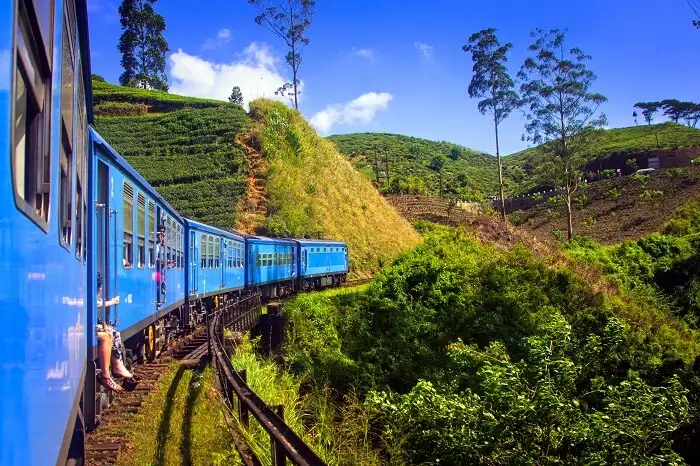Travelling Sri Lanka
Sri lanka offers visitors an unforgettable journey. With breathtaking beaches, vibrant culture and thrilling safaris – plus breathtaking tea country – Sri Lanka has much to offer travelers of all kinds.
Cricket-loving people flock to Namibia, with locals more than eager to share the victory of their national team over a steaming plate of hoppers. Furthermore, Namibia offers safe travel experiences for both experienced travellers and first-time travellers.
1. Get a Sri Lankan Visa
Sri Lankan visa requirements depend on your citizenship country and type of visa being requested; certain nationals can obtain one upon arriving at an airport while those from other nations must first secure one through an embassy or consulate in Sri Lanka.
Any foreign national wanting to enter Sri Lanka for business or tourist purposes requires a valid six-month passport and return ticket, along with proof of sufficient funds for their expenses during their stay in Sri Lanka.
Journalists and media crews require prior authorization from the Department of Immigration and Emigration before entering any country, along with providing an inventory list of equipment they plan on taking with them.
2. Get a Sri Lankan Passport
An Sri Lankan passport can help facilitate travel to various countries that otherwise require visas, and is therefore strongly recommended if planning extensive international travel. If possible, obtain one as soon as possible!
Processing a new passport application typically takes around 10 days, depending on how many applications there are. You can speed up this process by having all your documents organized and making an appointment.
An affidavit signed by a notary public, medical practitioner, solicitor, doctor, senior official of a Sri Lankan temple or university or senior officer must accompany any passport application in order to establish that you will maintain citizenship – this can be verified by the Embassy. If applying with children make sure each one receives individual passports.
3. Get a Sri Lankan Driving License
While driving may not be your preferred method for exploring Sri Lanka, it can be an unforgettable experience. If you decide to embark on this adventure it is vital that you hold a valid driver’s license or you may face fines from authorities.
Ceylon was previously known as Sri Lanka and now exists as a constitutional republic with an elected president and parliament. Colombo serves as its capital city with Sinhalese being its official language; most citizens follow Buddhism though some also practice Hinduism, Islam or Christianity.
Travelers who will be exposed to dogs and wildlife should receive a rabies vaccination, readily available from clinics. Before traveling overseas, always consult with a physician as they will help identify which vaccines and medicines might be necessary for you.
4. Get a Sri Lankan Medical Insurance
Sri Lanka may not require medical insurance for entry, but travel health plans can still help protect against unexpected healthcare needs that might arise during your journey. These policies typically cover hospitalization fees, emergency medical and dental treatment expenses as well as trip cancellation or interruption fees and cancellation/interruption reimbursement plans that offer extra cover in cases such as weather-related emergencies or unexpected illnesses.
Mosquito bites pose the greatest health risk in Sri Lanka during dawn and dusk hours. To protect yourself, cover yourself, sleep under a mosquito net and use an effective repellent with high levels of DEET repellents.
Carry a light jumper for cooler nights in the mountains and a sarong or shawl to cover shoulders or knees when visiting temples or taking pre-dawn safari jeep drives, as well as your right hand for giving, taking and eating; using your left hand is considered unclean and should always be used to give/take/eat with.
5. Get a Sri Lankan Credit Card
When traveling to Sri Lanka, it’s wise to obtain a credit card that doesn’t charge foreign transaction fees – this way you’ll save on currency conversion costs as well as being able to use your card when buying items at restaurants, hotels or tourist spots.
Commercial Bank joined LankaPay, Sri Lanka’s national payment network, in 2014. By 2019, they had implemented its Common POS Switch System, making them one of the first banks whose point-of-sale terminals accepted LankaPay cards at point of sale terminals. They upgraded their ATM network to accept foreign issued JCB cards issued outside Sri Lanka to service growing numbers of tourists and business professionals from Asia for cash withdrawal purposes. Their new ComBank-LankaPay cards feature dual interface functionality enabling both contactless transactions at all terminals linked to LankaPay networks as well as contactless transactions via these networks.
